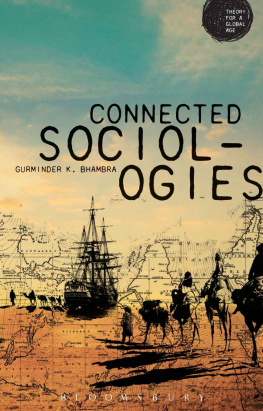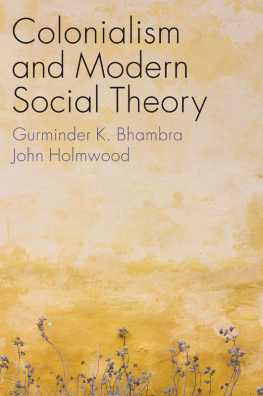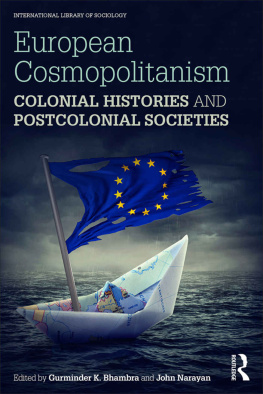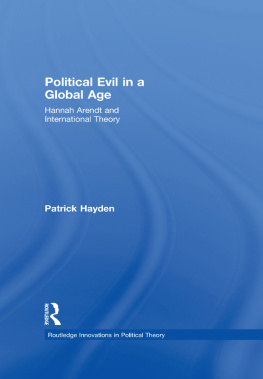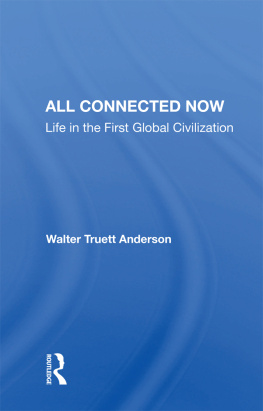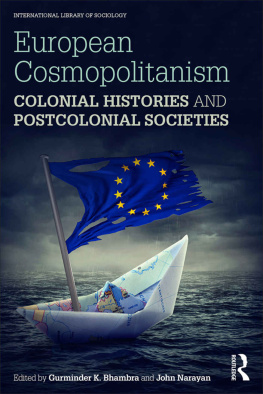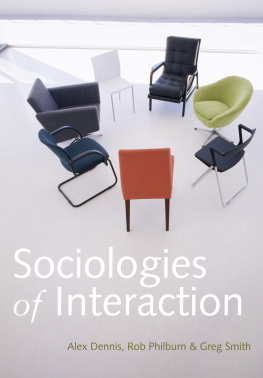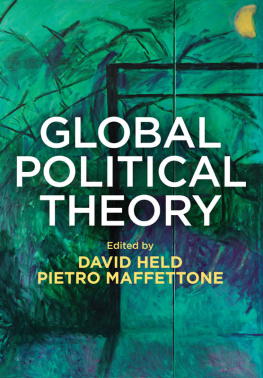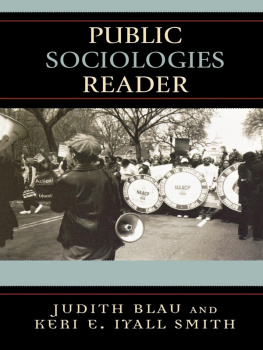Gurminder K. Bhambra - Connected Sociologies (Theory for a Global Age Series)
Here you can read online Gurminder K. Bhambra - Connected Sociologies (Theory for a Global Age Series) full text of the book (entire story) in english for free. Download pdf and epub, get meaning, cover and reviews about this ebook. year: 2014, publisher: Bloomsbury Publishing, genre: Politics. Description of the work, (preface) as well as reviews are available. Best literature library LitArk.com created for fans of good reading and offers a wide selection of genres:
Romance novel
Science fiction
Adventure
Detective
Science
History
Home and family
Prose
Art
Politics
Computer
Non-fiction
Religion
Business
Children
Humor
Choose a favorite category and find really read worthwhile books. Enjoy immersion in the world of imagination, feel the emotions of the characters or learn something new for yourself, make an fascinating discovery.
- Book:Connected Sociologies (Theory for a Global Age Series)
- Author:
- Publisher:Bloomsbury Publishing
- Genre:
- Year:2014
- Rating:5 / 5
- Favourites:Add to favourites
- Your mark:
- 100
- 1
- 2
- 3
- 4
- 5
Connected Sociologies (Theory for a Global Age Series): summary, description and annotation
We offer to read an annotation, description, summary or preface (depends on what the author of the book "Connected Sociologies (Theory for a Global Age Series)" wrote himself). If you haven't found the necessary information about the book — write in the comments, we will try to find it.
Connected Sociologies (Theory for a Global Age Series) — read online for free the complete book (whole text) full work
Below is the text of the book, divided by pages. System saving the place of the last page read, allows you to conveniently read the book "Connected Sociologies (Theory for a Global Age Series)" online for free, without having to search again every time where you left off. Put a bookmark, and you can go to the page where you finished reading at any time.
Font size:
Interval:
Bookmark:
THEORY FOR A GLOBAL AGE
Series Editor : Gurminder K. Bhambra, University of Warwick, UK.
Editorial Board : Michael Burawoy (University of California Berkeley, USA), Neera Chandhoke, (University of Delhi, India) Robin Cohen (University of Oxford, UK), Peo Hansen (Linkping University, Sweden) John Holmwood (University of Nottingham, UK), Walter Mignolo (Duke University, USA), Emma Porio (Ateneo de Manila University, Philippines), Boaventura de Sousa Santos (University of Coimbra, Portugal).
Globalization is widely viewed as the current condition of the world, only recently come into being. There is little engagement with its long histories and how these histories continue to have an impact on current social, political, and economic configurations and understandings. Theory for a Global Age takes the global as the already-always existing condition of the world and one that should have informed analysis in the past as well as informing analysis for the present and future. The series is not about globalization as such, but, rather, it addresses the impact a properly critical reflection on the global might have on disciplines and different fields within the social sciences and humanities. It asks how we might understand our present and future differently if we start from a critical examination of the idea of the global as a political and interpretive device; and what consequences this would have for reconstructing our understandings of the past, including our disciplinary pasts.
Each book in the series focuses on a particular theoretical issue or topic of empirical controversy and debate, addressing theory in a more comprehensive and interconnected manner in the process. With books commissioned from scholars from across the globe, the series explores understandings of the global and global understandings from diverse viewpoints. The series will be available in print, in eBook format and free online, through a Creative Commons licence, aiming to encourage academic engagement on a broad geographical scale and to further the reach of the debates and dialogues that the series develops.
Also in the series: Eurafrica: The Untold History of European Integration and Colonialism Peo Hansen & Stefan Jonsson | Forthcoming titles: The Black Pacific: Anticolonial Struggles and Oceanic Connections Robbie Shilliam |
On Sovereignty and Other Political Delusions Joan Cocks | John Dewey: The Global Public and Its Problems John Narayan |
Postcolonial Piracy: Media Distribution and Cultural Production in the Global South Edited by Lars Eckstein and Anja Schwarz | StarkUtopia:DebtasaTechnologyofPower Richard Robbins and Tim Di Muzio Cosmopolitanism and Antisemitism Robert Fine and Philip Spencer Debating Civilizations: Interrogating Civilizational Analysis in a Global Age Jeremy Smith |
For John
Connected Sociologies
Gurminder K. Bhambra

Contents
As the first volume in this series, Gurminder K. Bhambras Connected Sociologies bears a special responsibility in providing the intellectual compass for the series as a whole. She does this in a challenging and engaging way. Her starting point is that, despite its ambitions, sociology has remained a fragmented discipline. She sees comparative and historical sociology, and more recent attempts to adumbrate a global sociology, as partial and incomplete. Despite meetings of the International Sociological Association in India, Mexico and South Africa and notwithstanding the growth of the discipline all over the world, there is still a sense in which western sociology has remained hegemonic and continues to be indifferent to dissident and peripheral voices. Sociologists from the rest of the world are simply not connecting with colleagues in the west as equal epistemic communities.
Bhambra makes a convincing case that one root of this problem lies in the abject failure of sociology and anthropology to engage seriously with each other. As she affirms, it is no longer possible to separate out the subject domains of these two cognate disciplines. Indeed, their initial separation is illustrative of the problem. If the very heart of modernity was mercantile capitalism, colonialism and imperialism, to side-line empire from the subject of sociology was a significant and far-reaching historical distortion. Such a distortion was later magnified, so I understand her argument, in Marxs notion of successive modes of production, by Rostows stages theory, and in the dominant versions of civilizational analysis. The normative direction of movement was nearly always from them (the peripheral, marginal, backward, primitive, poor, underdeveloped) to us (enjoying the opposite conditions).
For Bhambra, the us is Europe or Europe transplanted to the USA, and even when universal values and the cosmopolitan spirit are evoked, the us remains largely inviolate. In this respect it is notable that Habermas and Beck find their embryonic cosmopolitanism in the European Union. This is self-limiting in Bhambras view and, incidentally, also rather over-optimistic in the light of the rabid forms of nationalism rearing their ugly heads in so many European countries. She accepts that Wallerstein (in his world system and other writings) and Mann (in his ambitious extension of Weber) made major attempts to define a globally-based sociology, but neither escapes Bhambras critique that they are working from the inner ring to the outer circle and using a method (delineating ideal-types) which, she argues, is unsatisfactory.
What then is Gurminder K. Bhambras way forward? Here I must encourage you to read the full argument for I can only summarize. She advocates a pluralism of voices, but is clear that allowing alternative voices alone is insufficient if that results merely in cacophony or a more subtle form of hegemonic tolerance. By contrast, relativism and enhanced boundary control lead merely to isolation from the mainstream. The different voices have, in short, to connect to relate, to overlap, perhaps partially to converge, certainly to learn from each other in an open and respectful way. We should be grateful to her in starting us on this journey of mutual discovery.
Robin Cohen
University of Oxford
This book is an attempt to make good on questions raised by my father, questions that others with my social and cultural background may recognize from their own diasporic experiences. My father was a man who, enjoying the freedoms that independence from colonial rule brought, journeyed across India by train reading newspapers, consuming literature, talking to the peoples he encountered and arguing with them. Arguing, always arguing, against those who lamented the departure of the British, against those who expressed forms of dependency, whether intellectual or other, against those who saw the British Empire as a force for good in the world. Instead, he spoke to them about exploitation, about appropriation, about dispossession, and about the profound injustices and injuries of over two centuries of colonization. Much later he would question my own bland assertions drawn from a standard British schooling that drew attention to the horrors of Stalinism, but had nothing to say about the genocides of native peoples in the lands that came to be known as the Americas, as New Zealand, as Australia and as South Africa. He questioned the assertion that there was no democracy in countries such as Cuba by asking what I knew of the problems that any democracy might face that challenged Western hegemony. What did I know of the overthrow of the democratically elected Allende, of the murder of Lumumba, of countless other instances by way of which the Third World project was undermined? In his refusal to accept as truth the stated truths of the colonizer, he was the first to teach me to question, to ask is that really so?
Font size:
Interval:
Bookmark:
Similar books «Connected Sociologies (Theory for a Global Age Series)»
Look at similar books to Connected Sociologies (Theory for a Global Age Series). We have selected literature similar in name and meaning in the hope of providing readers with more options to find new, interesting, not yet read works.
Discussion, reviews of the book Connected Sociologies (Theory for a Global Age Series) and just readers' own opinions. Leave your comments, write what you think about the work, its meaning or the main characters. Specify what exactly you liked and what you didn't like, and why you think so.

